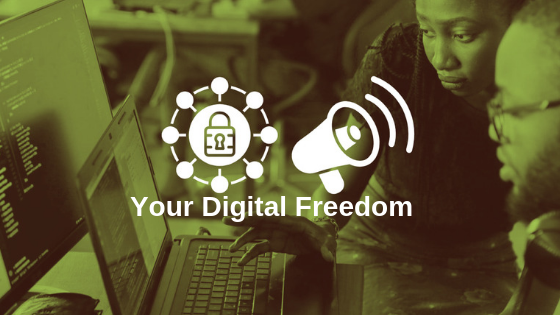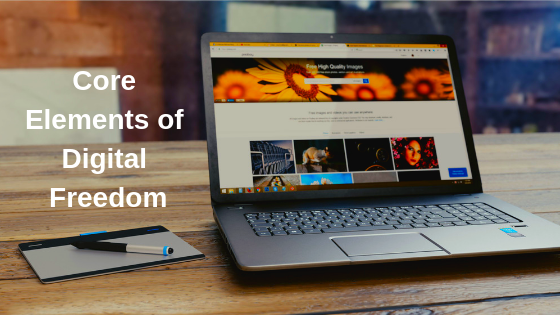
Digital Freedom has become increasingly meaningful as so much of the framework of our lives is held and managed over computers and computer networks. The Internet is global, pervasive, and isn’t slowing down anytime soon.
At Polycot Associates, one of our primary beliefs is in an inherent right to digital freedom. What does this term really mean? EFF-Austin, a spinoff from the national Electronic Frontier Foundation (EFF), offers some insight into the meaning of digital freedom in their mission statement. EFF-Austin says that their mission is to advocate for “the right to communicate [over computer networks] and share information without unreasonable constraint…[we have] the fundamental right to explore, tinker, create, and innovate along the frontier of emerging technologies. ”EFF-Austin is a non-profit organization focused on areas of free speech, creativity and innovation, privacy, security, and transparency.
On a personal level, I have supported digital freedom for nearly three decades. As President of the Board of EFF-Austin for 15 years and as a web developer and cooperative member of Polycot Associates, I hold the concept of digital freedom at the forefront of my thinking. While I’m no longer President of EFF-Austin, I continue to be an active member on the Board of Directors and to strongly advocate support for online freedom and open technology. Part of that advocacy work is a dedication to education and conversation. Educating others about issues surrounding digital freedom and trying to catalyze conversation about the complexities inherent in related issues are always compelling priorities.

Core Elements of Your Digital Freedom:
Free Speech:
- According to EFF, "while speech is invited and empowered on the electronic frontier, it is also sometimes threatened." Individuals and organizations should be free to express their opinions and ideas without fear of censorship or retaliation. We should be vigilant to detect and challenge attempts to constrain this freedom via policy or force. This has become highly relevant with the issues around Google and Project DragonFly.
Creativity and Innovation:
- We should stand against the unfair practices of litigious copyright and patent owners who abuse the law to inhibit fair use and stifle competition. “Internet service providers can give established content companies an advantage over startups and veto the choices you make in how to use the Internet," according to EFF. Supporting the concepts of fair use, innovation, open access, net neutrality, and - as Ed Felten calls it - "freedom to tinker." It is "your freedom to understand, discuss, repair, and modify the technological devices you own."
Privacy:
- As so much of our communication, media, and information sharing has moved online, privacy has become a huge concern. Privacy is an important aspect of individual autonomy. We should have an expectation that private communications will remain private. We should also assume that we are not being virtually followed using our cell-phone’s GPS data. There may be exceptions (e.g. law enforcement concerns) where there should be inherent ongoing protection against unauthorized search and seizure.
Security:
- Computer and network security have evolved as the Internet has increasingly become a platform used for financial and other sensitive transactions. Early on, we supported the lawful use of encryption to protect personal and financial data - a huge concern today.
Transparency:
- "Transparency is especially important given the government’s increasingly secretive use of new technologies for law enforcement and national security purposes," according to EFF. Without transparency, it is difficult to hold the government accountable and ensure digital rights.
Freedom to Connect:
- This is another term for the concept more often referred to as net neutrality. You should have the freedom to connect to the Internet with the expectation that data you either request or deliver will not be impeded and that everyone has the same ability to access and publish online without regard, to race, creed, color or depth of pocket.
Digital freedom is the firm belief in digital and personal freedom. How do we leverage the evolving Internet to network together without making formal, and potentially constraining, connections? How can we bring together organizations with similar beliefs about digital freedom to create constructive change in our society? These are the kinds of questions we ask ourselves at Polycot Associates, as technologists and creatives whose business is built on the World Wide Web.
- Log in to post comments

